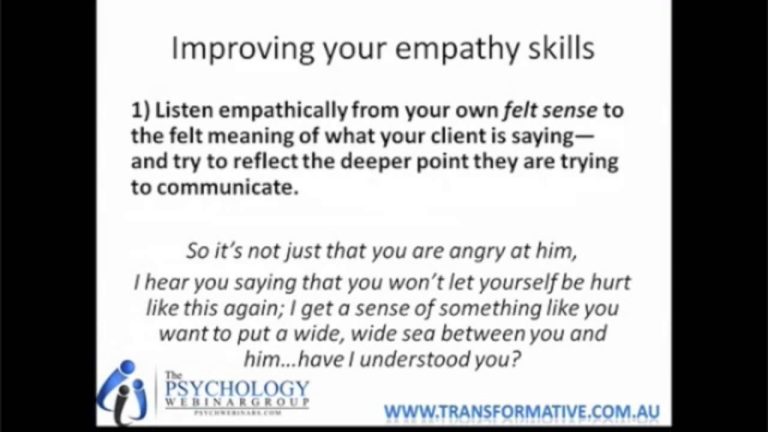Crippling Anxiety Public Speaking
Imagine standing in front of a crowd, your heart pounding, your palms sweating. Crippling anxiety takes over as you’re about to deliver a speech or presentation. But hey, don’t worry, you’re not alone! Public speaking can be intimidating for many of us, especially when anxiety kicks in.
Public speaking anxiety, also known as glossophobia, is more common than you might think, affecting people of all ages. It’s that overwhelming fear that can make your mind go blank, your voice shaky, and your knees weak. But fear not, because in this article, we’re going to explore strategies and tips to help you overcome your crippling anxiety when it comes to public speaking.
So, if you’ve ever found yourself dreading the thought of speaking in front of others, you’ve come to the right place. Crippling anxiety in public speaking may seem overwhelming, but with the right tools and a little practice, you can gain confidence, conquer your fears, and become a captivating speaker. Let’s dive in and unlock the secrets to overcoming your public speaking anxiety once and for all!
Do you struggle with anxiety when speaking in public? It can be tough, but there are ways to manage it. Start by setting small goals for yourself and gradually work your way up. Practice deep breathing exercises and visualization techniques to calm your nerves. Remember, everyone gets nervous, even seasoned speakers. Build confidence by preparing and rehearsing your presentation thoroughly. Lastly, focus on the audience and the message you want to convey rather than your own anxiety. You got this!

The Crippling Anxiety of Public Speaking: Conquering Your Fears
Public speaking can be an incredibly daunting task for many individuals, evoking feelings of anxiety and fear that can be truly crippling. Standing in front of an audience and delivering a speech or presentation can trigger a range of physical and emotional symptoms, making it difficult to effectively communicate your message. However, with the right techniques and mindset, you can overcome this crippling anxiety and become a confident and impactful speaker. In this article, we will explore the causes of this anxiety, its effects on individuals, and provide practical tips to help you conquer your fear of public speaking.
The Causes and Symptoms of Crippling Anxiety in Public Speaking
There are several factors that can contribute to the development of crippling anxiety in public speaking. One common cause is the fear of judgment and criticism from others. The thought of making mistakes, stumbling over words, or being perceived negatively by the audience can trigger intense anxiety and self-doubt. In addition, the pressure to perform well and meet expectations can significantly contribute to the anxiety experienced in public speaking.
The symptoms of this anxiety can manifest in both physical and emotional ways. Physically, individuals may experience rapid heartbeat, trembling, sweating, shortness of breath, and dizziness. Emotionally, individuals may feel a sense of dread, panic, or a desire to avoid public speaking situations altogether. These symptoms can vary in intensity and duration depending on the individual, but they can all contribute to the overall sense of crippling anxiety.
Understanding the Mind-Body Connection: Breaking the Cycle
In order to overcome crippling anxiety in public speaking, it’s important to understand the mind-body connection and how to break the cycle of fear and negative thinking. When faced with a public speaking opportunity, our minds often jump to worst-case scenarios and create a negative narrative about our abilities. This negative thinking then triggers physical symptoms of anxiety, reinforcing the belief that we are incapable of speaking confidently.
To break this cycle, it’s important to challenge and reframe our negative thoughts. Instead of focusing on potential mistakes or judgment from others, shift your mindset to focus on the value and knowledge you can bring to the audience. Remember that everyone makes mistakes, and it’s often those moments of vulnerability that make a speaker relatable and authentic.
In addition to mindset shifts, incorporating relaxation techniques such as deep breathing, visualization, and progressive muscle relaxation can help calm the physical symptoms of anxiety. Practicing these techniques regularly can help retrain your body to respond more calmly in public speaking situations.
Practical Tips for Overcoming Crippling Anxiety in Public Speaking
Alongside mindset shifts and relaxation techniques, there are several practical tips that can help you overcome crippling anxiety in public speaking:
- Prepare and practice your speech thoroughly: Knowing your material inside and out can boost your confidence and reduce the anxiety of forgetting key points.
- Start with smaller speaking engagements: Gradually expose yourself to public speaking by beginning with smaller groups or events. This can help build your confidence and familiarity with the speaking process.
- Utilize visual aids or props: Incorporating visual aids or props into your presentations can help redirect the audience’s attention, providing a sense of support and easing the pressure on you as the speaker.
- Engage with the audience: Interacting with the audience by asking questions or encouraging participation can create a more dynamic and inclusive speaking environment. This can help alleviate the pressure of being the sole focus of attention.
- Seek support from a mentor or coach: Working with a mentor or coach who has experience in public speaking can provide valuable guidance, feedback, and support to help you improve your skills and confidence.
By implementing these practical tips and combining them with mindset shifts and relaxation techniques, you can gradually overcome your crippling anxiety of public speaking and become a confident and impactful speaker.
Facing Your Fears: Empowering Yourself in Public Speaking
While the journey to overcoming crippling anxiety in public speaking may not be easy, it is certainly achievable. By understanding the causes and symptoms of this anxiety, addressing negative thought patterns, and implementing practical tips, you can empower yourself to face your fears and become a powerful and effective communicator. Remember, public speaking is a skill that can be learned and improved upon with practice and determination. So take that first step, embrace the challenge, and watch as your confidence grows.
The Power of Self-Acceptance and Support in Public Speaking
Self-acceptance and support from others play a crucial role in conquering the crippling anxiety of public speaking. It’s important to remember that everyone has their own unique speaking style and that imperfections are part of being human. Embrace your individuality and celebrate your strengths as a speaker. Surround yourself with a supportive network of friends, colleagues, or fellow speakers who can provide encouragement and constructive feedback. By accepting yourself and seeking support, you can build the confidence needed to overcome this anxiety and thrive in public speaking.
The Journey Towards Success: Embracing Growth and Learning
View public speaking as an opportunity for growth and learning rather than a source of anxiety. Embrace each speaking engagement as a chance to develop your skills, expand your knowledge, and connect with others. Remember that even the most seasoned speakers started somewhere, and it’s through perseverance and a willingness to learn that they have become successful. So, embrace the journey, learn from every experience, and watch as your confidence and impact as a speaker continue to grow.
Key Takeaways: Overcoming Crippling Anxiety in Public Speaking
- Accept that feeling nervous is normal and everyone experiences it.
- Practice deep breathing exercises to calm your body and mind.
- Prepare and rehearse your speech multiple times to build confidence.
- Visualize success and positive outcomes before your presentation.
- Seek support from a therapist or join a public speaking group for guidance and encouragement.
Frequently Asked Questions
You have come to the right place if you have concerns about public speaking and its impact on anxiety levels. Here are some common questions people have about crippling anxiety and public speaking, along with their answers.
What are the symptoms of crippling anxiety when it comes to public speaking?
Crippling anxiety related to public speaking can manifest in various ways. Some common symptoms include a rapid heartbeat, shaking or trembling, shortness of breath, excessive sweating, dry mouth, and difficulty concentrating. Additionally, individuals may experience overwhelming fear, a sense of panic, or a strong desire to escape the situation.
It’s important to note that symptoms can vary in severity from person to person, and they may even change over time. If you experience these symptoms consistently and they significantly interfere with your ability to speak in public, it may be beneficial to seek professional help.
How can I overcome crippling anxiety when it comes to public speaking?
Overcoming crippling anxiety when it comes to public speaking is a gradual process, but it can be achieved with consistent effort. One important step is to practice regularly, both in front of a mirror and in front of supportive individuals. Gradually, you can begin to expose yourself to increasingly larger audiences, building your confidence along the way.
Another technique is to utilize relaxation exercises before and during public speaking. Deep breathing, visualization, and positive affirmations can help calm your nerves and establish a more relaxed state of mind. Additionally, seeking professional assistance through therapy or counseling can provide valuable tools and coping mechanisms to manage anxiety more effectively.
What are some tips for managing anxiety during a public speaking event?
When it comes to managing anxiety during a public speaking event, preparation is key. Practice your speech multiple times, ensuring that you are familiar with the content and flow. Familiarize yourself with the venue and equipment beforehand, as this can help alleviate any additional stress on the day of the event.
During the speech, focus on your breathing and remind yourself to speak slowly and clearly. Take small breaks if needed, allowing yourself to gather your thoughts and regain composure. Additionally, remember that making mistakes is normal, and the audience is usually understanding. Try to shift your focus from perfection to delivering your message effectively.
How can I build confidence in public speaking to combat anxiety?
Building confidence in public speaking takes time and practice, but it is possible. Start by recognizing and challenging negative thoughts, replacing them with positive affirmations and realistic expectations. Visualize yourself delivering a successful speech, building a mental image of confidence and competence.
Seek opportunities for public speaking, even if they are small-scale events, such as speaking in front of friends or volunteering to present in a group setting. Each successful experience will boost your confidence and diminish anxiety over time. Lastly, embrace feedback and constructive criticism as an opportunity to improve rather than a personal attack.
Are there any strategies to help overcome stage fright before a public speaking event?
Overcoming stage fright before a public speaking event requires a combination of mental and physical strategies. Engage in relaxation techniques such as deep breathing exercises, meditation, or listening to calming music. Visualize yourself successfully navigating the event and imagine the positive outcome you desire.
Additionally, adopting a positive mindset and reframing the situation can be helpful. Instead of viewing it as a threatening experience, consider it an opportunity for personal growth and the chance to connect with others. Finally, channel your nervous energy into enthusiasm and passion for your topic, as this can help shift the focus away from anxiety and towards delivering a memorable speech.
Summary
Public speaking can be really scary for some people, causing crippling anxiety. It’s important to remember that many others feel the same way. To overcome this fear, practice and preparation are key. Start small by speaking in front of a mirror or a close friend, and gradually work your way up to larger audiences. Taking deep breaths and visualizing success can also help calm nerves. Remember, everyone makes mistakes, and it’s okay to stumble or forget something. Just keep going and believe in yourself. With time and practice, public speaking can become less intimidating and more enjoyable.


